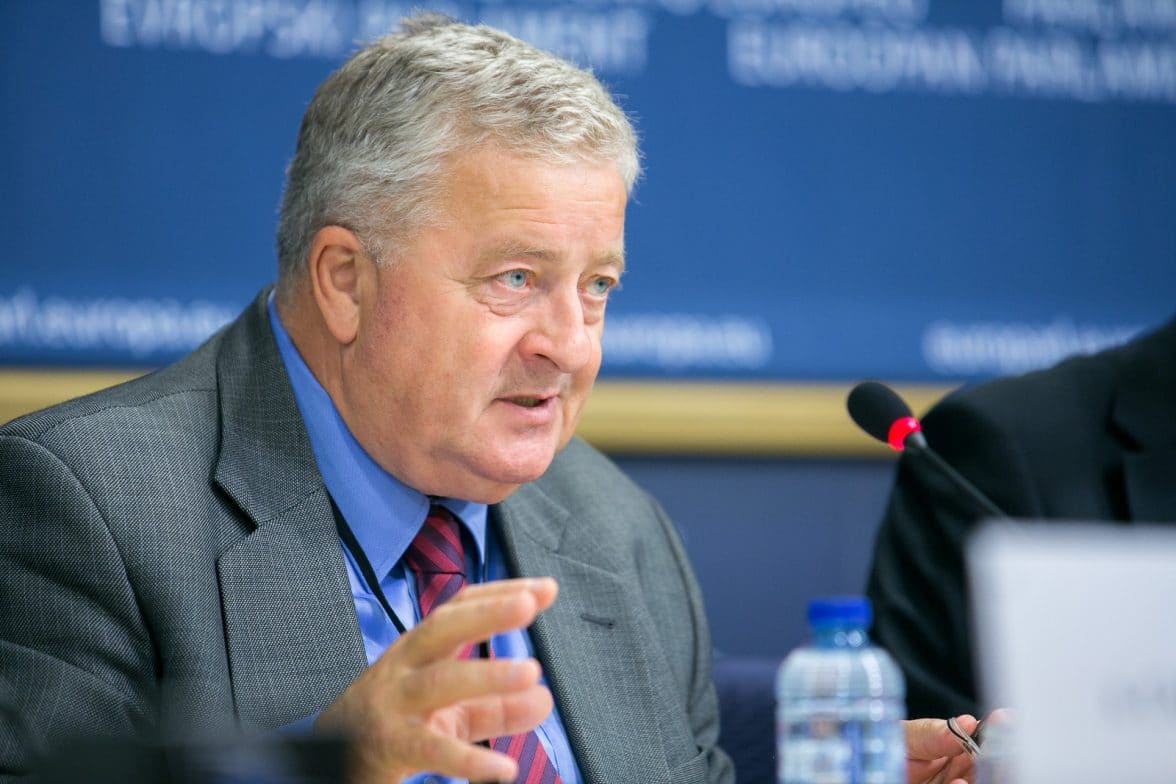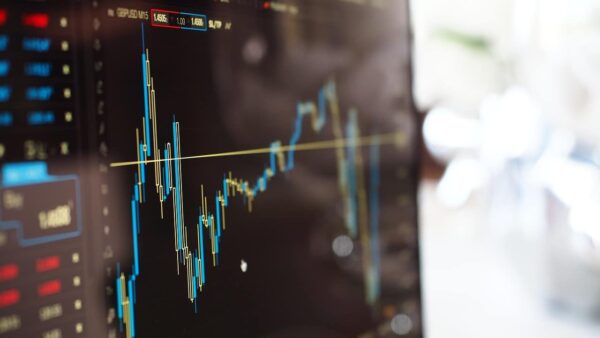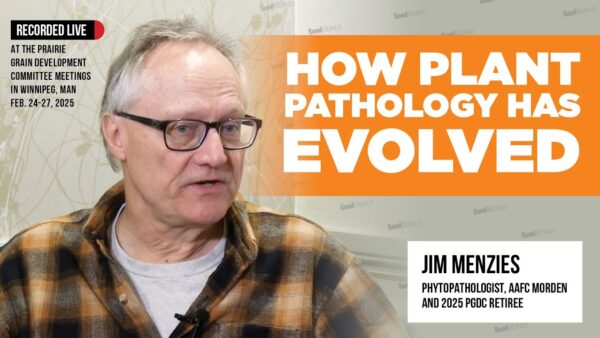The European Parliament’s Czesław Siekierski talks about food security and the challenges it poses for EU agriculture.
According to the United Nations, the world population is currently estimated to be around 7.3 billion people and it is expected to be 9.7 billion by 2050. What we can expect to see is an increased demand for food, water and energy.
Current production is capable of meeting the global demand for food, feed, energy and resources, but in some regions of the world the situation may be different due to problems connected with the availability of resources, political priorities, insufficient infrastructure, market failures or lack of possibility to buy food. According to the FAO, by 2050 we will need to increase our agricultural production by 70 to 80 per cent.
The agro-food sector plays a crucial role in terms of our diet, which has an impact on our health. Agriculture influences the natural environment, plays a role in protecting landscapes and biodiversity under the condition that proper agricultural rules are followed, for example in terms of fertilizers or plant protection.
One cannot speak about a proper progress and development of agricultural production without raising the issue of good-quality reproductive material. It is especially important if we consider the already-mentioned dynamic increase in world population and the increasing demand for food that follows.
The European and global seed industry would very much like to see the GMO legislation set in order. An intelligent compromise is needed here that would take both social concerns connected with food from GMO and guarantee a harmonious and uninterrupted trade and use of seeds.
Industry concerns regarding the issue of patenting and biotechnological varieties with the use of biological processes are also understandable. Certain actions could disrupt the seed market and damage the access to good-quality material.
A significant challenge for the seed industry, but also the European, American and global agriculture business is, of course, the currently negotiated TTIP agreement between the EU and the U.S. There is a difficult task ahead of us to find a balanced compromise between concerns and needs of farmers and consumers, as well as the expectations of the seed industry on both continents.
The European model of agriculture, that we are so proud of, has been shaped in the course of over 50 years since the Common Agricultural Policy (CAP) was created. Basic goals of the CAP have been included in the Treaty of Rome and envision a common availability of food products at affordable prices as well as a decent level of income for the farmers.
CAP has also played its role in stabilising agricultural markets and boosting efficiency of agriculture thanks to technological development and better use of inputs. These goals have been, to a large extent, achieved. As we know, during the war and shortly after it, Europe has suffered from hunger and the CAP ensured a common access to good quality food.
However, the sector is experiencing some difficulties due to the lack of balance in agricultural markets. For an extended period of time, an extremely difficult situation has been present within many agricultural markets in the EU.
For the last several years global prices of agricultural products have been dropping. Brazil and Argentina have significantly increased their production. All this is happening alongside a dropping demand for food on the part of China and India. The Russian embargo also had its influence on Europe, as it has already been in force for two years.
Additional measures are necessary to protect our agriculture. Farmers need to be provided with easy-to-use financial instruments. It is advisable to continue with the policy of active promotion and search for new markets. There is also a need for legislative actions to combat unfair trading practices against farmers in the food supply chain, which are responsible for them bearing the highest costs that result from dropping prices, so that they can enjoy a decent income.
The Role and Significance of Science
Since the beginning of CAP, scientific research concentrated mainly on boosting efficiency. Research done on plants was focused mainly on producing higher yields. It is estimated that since the 1940s, there has been a 25 to 50 per cent increase in productivity of EU agriculture.
It is also expected that scientific research in this field will provide options for integrating agricultural and environmental objectives, which is highlighted in the EU program Horizon 2020. Research should take into account all the different agricultural systems, including large and small farms, in order to preserve their contribution to the food supply chain, boost their productivity and maintain their role in supplying social and environmental services.
In the coming years there is a need for further development in plant breeding. Increasing yields of legumes, meant for protein feed for animals or green feed such as field beans and peas, is yet another important objective.
Methods of precision farming are viewed as promising in terms of reducing the amount of some types of inputs used in agriculture, such as fertilizers and even water. However, benefits coming from precision farming cannot be obtained across the entire EU as such techniques are meant for specialised plant breeding in the crops sector and on larger agricultural holdings. For that reason, rural development policy is best suited to aid the introduction of precision farming through individual projects.
Scientific research and innovation may indirectly contribute to higher production of food also by reducing food waste at the production and consumption stages.
It so happens that the most spectacular changes and innovations in the world of science and technology have come to be in the last several decades. One might say that these grand changes have occurred while the CAP has been in effect.
During the Millennium Summit of the UN in 2000, the world has set for itself some ambitious Millennium Development Goals that promoted combating extreme poverty and hunger as well as a move towards sustainable development and respect for the natural environment. These goals were to be realised before 2015. Despite significant achievements, the realization of these goals proved to be very different in various countries. For that reason, after the year 2015 much broader Sustainable Development Goals are being realized.
This example shows that CAP is, in a certain sense, the vanguard of changes in the global agriculture and food supply — we were able to eliminate hunger already in the first years of its functioning and we have already adopted the notion of sustainable development into our agricultural policy.
Developmental processes have their local, regional, national, macro-regional and global aspects. Due to the already-mentioned revolution in technology, informatics and communication that serve to speed up globalisation should be looked at from a global perspective. This is true for social problems, nature and climate, financial and banking systems (global crises), different forms of security, and also food security and food safety. The latter is connected to the growing threat of hyper-local, or even global, epidemics.
It would appear that the diversity of nature and climate as well as social and cultural differences are currently much more visible in comparison to technology. For example, the newest technological innovations, such as the Internet and smartphones, have very quickly reached even the most remote regions of the world, while limitations stemming from environmental or cultural barriers are not that easy to breach. This diversity has also played a role in terms of creating a world with different means of food production and different diets around the globe.
Growing transport possibilities connected with moving food and increasingly better functioning of the global market leads to significant harmonisation of agricultural production and diets, since cereals, milk products and meat are becoming the main agricultural products. This provides an opportunity for securing the availability of food in regions where their production is problematic.
Agriculture, Climate Changes and the Issue of Energy
Climate changes will probably lead to changes in our agricultural systems, which can pose a threat to the production and global food security. Extreme weather conditions such as draughts and floods will appear more often and the localisation of production areas will also shift.
These issues have been discussed, for example, during the last UN Climate Conference in Paris in December 2015. This would mean that agriculture is expected to further limit the emissions of greenhouse gases, but emissions from agriculture since 1990 have dropped by nearly a quarter. This can be attributed to an increase in efficiency, a decrease in the number of livestock and better agricultural practices.
At the same time, agriculture can contribute to mitigating the consequences of climate change by capturing carbon dioxide in soils and plants, the use of legumes and biogas production. Also the greening component of CAP is to serve the goal of improving the condition of the environment and combatting climate change. Greening is a condition for receiving 30 per cent of direct payments, and at the same time 30 per cent of funds from the CAP second pillar are allocated for agro-environmental climate and forestry programs.
Agriculture, apart from providing resources for the industry, also has significant potential in the field of energy production by having a positive impact on energy security. It is mainly the case in terms of renewable energy sources such as biomass, biogas, biofuels, solar, water and wind energy in rural areas, et cetera.
The Issue of Water Shortage
Something closely connected with climate change is the growing problem of water shortage. Water is predominant on Earth and covers 71 per cent of the globe. However, only a small amount of all water reserves are useful for humans (fresh water). It is estimated that global demand for water will increase by 40 per cent due to the effects of such factors like population growth and climate change. Over 20 years ago, the UN declared March 22 as World Water Day and several years ago recognized access to clean water and sanitary facilities as one of humanity’s fundamental rights.
Water is needed in agriculture to grow plants and breed animals, it is also necessary in the food processing industry and other sectors of the economy. Globally, agriculture uses up around 70 to 80 per cent of all fresh water that is in use.
In the EU, agriculture uses up around 33 per cent of acquired fresh water. Climate change as well as constantly growing demand for water results in many agricultural regions in Europe being endangered by water shortage. That is why agriculture is one of the key sectors in the EU that must increase their efforts to improve water management.
In the scope of the reform of the CAP, there were actions aimed at protecting water and the improvement of water management in rural areas. One should keep in mind that water management is a complex topic that requires numerous actions and investments.
An increased forest coverage would serve to improve water conditions. Also an adequate selection of crops may serve to increase the amount of water captured in soils. Crops more resilient to draught should be promoted in the areas especially at risk from water shortage. This will bring numerous benefits to the farmers, enabling them to save water and energy and increase the resilience of crops to climate change.
The necessary adjustments in the scope of managing water reserves in rural areas in the context of current economic, environmental and climate challenges are significant and very costly. That is why these goals should be aided also from funds other than CAP.
In regard to energy policy, new instruments are being introduced aimed at rational and effective use of energy. The approach to solving water issues should be the same. Ensuring sufficient access to water is one of the major challenges that the world is facing nowadays since water determines economic development and human progress.
—Czesław Siekierski is Chairman of the Committee on Agriculture and Rural Development in the European Parliament











